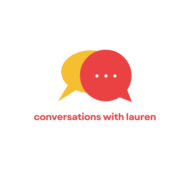
Navigating the job interview can feel like preparing for a battle, but with the right strategies in your arsenal, it’s more like a game of chess. One of the trickiest questions employers throw your way is, “What motivates you the most?” If it sounds like a trick question, that’s because it can be. After all, the answer you provide not only reveals your personality but also determines if you’re a fit for the role. So, let’s jump into how to tackle this question with flair, humor, and a dash of professionalism. Because who wouldn’t want to impress while showcasing their motivations?
What Motivates You The Most Interview Question

Understanding what drives employees can make or break a team’s success. Motivation isn’t just a buzzword: it’s the fuel that propels productivity and creativity. When employees are motivated, they exhibit higher levels of engagement and a willingness to go the extra mile. This means projects get completed ahead of schedule, collaboration flourishes, and eventually, the bottom line gets a boost. Company culture thrives on motivated individuals who bring positive energy every day.
Staff motivation reflects in employee retention, too. When people feel inspired, they’re less likely to seek opportunities elsewhere. So, not only does motivation enhance productivity, but it also fosters loyalty. This connection is why employers prioritize understanding each candidate’s motivations during interviews.
Common Motivation Factors Employers Look For
Employers often seek specific motivation factors during interviews to gauge whether a candidate aligns with their company values. Here are some common motivators that crop up:
-
- Personal Growth: Candidates that thrive on self-improvement and continuous learning can add immense value to an organization.
-
- Team Collaboration: A motivation to work well with others indicates strong communication skills and the ability to foster teamwork.
-
- Achieving Goals: Candidates who are results-oriented tend to drive projects to completion, contributing directly to the organization’s success.
-
- Challenge Seeking: Many employers appreciate those who love challenges as they often bring innovation and creative problem-solving to the table.
-
- Work-life Balance: This factor showcases a desire for personal well-being, crucial in today’s fast-paced work environment.
Crafting Your Response to the Interview Question
Crafting a compelling response to the question “What motivates you the most?” starts with introspection. Here are steps to guide the process:
-
- Reflect on Experiences: Candidates should think about moments in previous jobs that placed them in high spirits. This reflection can spark genuine responses.
-
- Align with Company Values: Understanding the company’s mission can help tailor the answer, illustrating a deeper connection between personal motivations and the organization.
-
- Be Specific: Avoid vague statements. Instead of saying, “I enjoy challenges,” illustrate this with a personal story or example that highlights an achievement.
-
- Show Enthusiasm: Enthusiastic responses can be infectious. If a candidate shows genuine excitement about their motivations, employers are likely to take notice.
Examples of Strong Responses
Here are a few examples that shine when answering the motivation question:
-
- Example 1: “I am deeply motivated by personal growth. In my previous role, I sought out projects that pushed the boundaries of my skills, which eventually led me to a promotion. I believe continuous learning is essential in the tech field and can lead to innovative solutions.”
-
- Example 2: “Collaboration fuels my productivity. I enjoy sharing ideas with my team. For instance, we recently tackled a significant project together, and the synergy we created not only met our deadline but exceeded our client’s expectations. That atmosphere is what keeps me engaged and motivated.”
-
- Example 3: “Challenges drive my enthusiasm. I thrive in environments where I can use my creative problem-solving skills. For example, when faced with a significant hurdle in my last project, I proposed a new strategy that not only addressed the issue but also improved our workflow efficiency by 20%.”
Tailoring Your Answer to the Job Role
When asked about motivation, tailoring the answer to fit the job role is essential. Consider the role’s requirements and align your motivations with what the employer values most:
-
- If applying for a sales position, emphasize your drive to achieve targets and how that motivates you.
-
- In a creative role, discuss how motivational aspects like innovation or artistic collaboration inspire your work.
-
- For leadership positions, focus on your passion for mentoring and motivating others to reach their potential. The key lies in crafting an answer that mirrors the role’s demands while staying true to personal motivations.
Tips for Effective Communication During Your Response
Effective communication is crucial when answering tough interview questions. Here are some tips:
-
- Practice: Rehearse your response to sound natural without overthinking it.
-
- Stay Positive: Keep the tone optimistic, focusing on what you enjoy rather than what you don’t.
-
- Body Language: Nonverbal cues say volumes. Maintain open body language and make eye contact to convey confidence.
-
- Listen and Tailor: Pay attention to the interviewer’s cues. If they respond positively about specific motivators, consider elaborating more on that angle.
